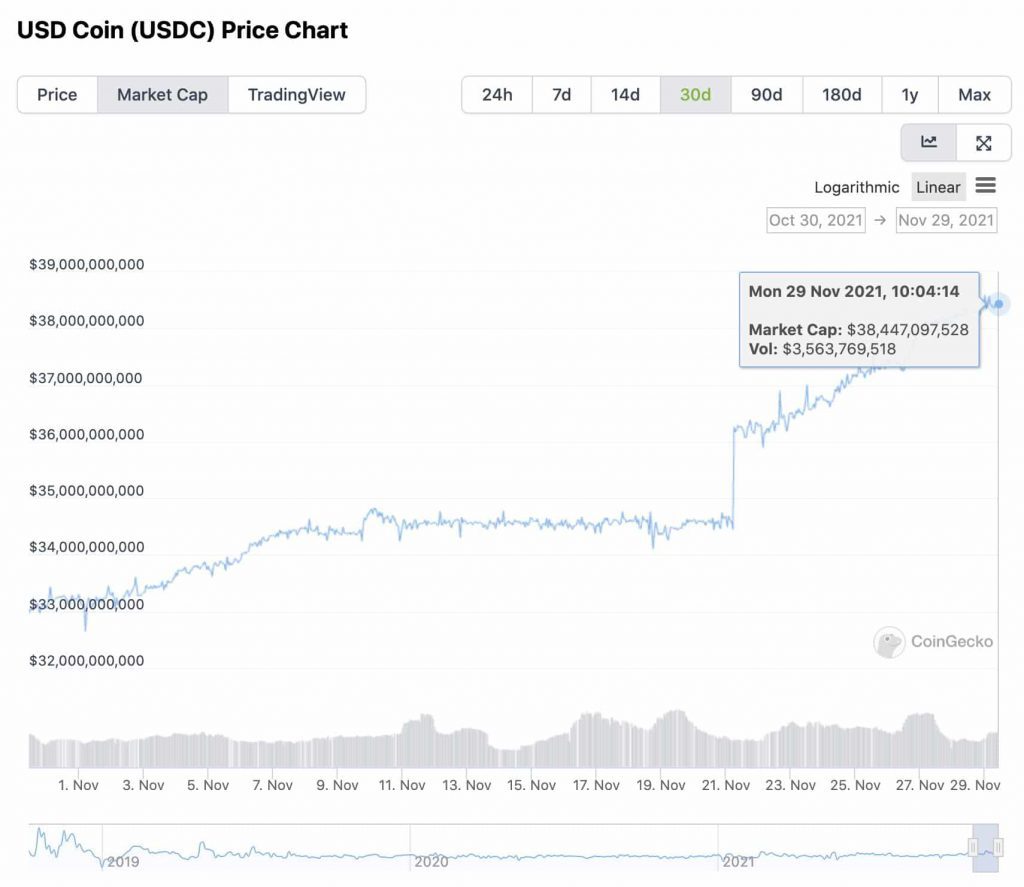Tether’s $1 Billion USDT print this week raised many eyebrows amid US federal agencies’ plan to tighten their scrutiny around stablecoin issuers. The major concern for authorities lies with the issuance backings that have been found misleading in the past. After Tether, now Circle’s latest $5 billion USDC has come under scrutiny.
Circle has issued $5 billion worth of USDC over the past month without offering much light on whether it’s cash or collateral backed. Technically, being a stablecoin, the circulation amount must be backed by an equivalent amount of stable asset, ideally US Dollar. However, audit reports from both Circle and Tether have shown only a small amount of the circulation supply is backed by cash or cash equivalents.
A Twitter user Paul Everton wrote that he doesn’t think USDC is legit anymore, pointing towards the recent USDC issuance. Everton believes since Circle hasn’t claimed the recent issuance as cash-backed, it’s most probably backed by some form of collateral. He went on to add that stablecoin issuer’s willingness to back circulation supply with collateral doesn’t make them any different from Hedge funds.
“Skeptics told me that USDC isn’t legit. I thought it was shady but ok because Coinbase wouldn’t want to engage in such bad behavior. But looks like The Future of Finance™ is awfully like the past of finance. Do whatever you can get away with, pay fines when necessary.”
This all means that USDC is probably just another form of crypto hedge fund leverage that allows to put money in the market when Tether can’t for one reason or another. (3/4)
— Paul Everton (@realpauleverton) November 29, 2021
Can USDC Grow Out of USDT’s Shadow?
Circle issued USDC has become one of the faster-growing stablecoin in the crypto market which was mostly dominated by Tether’s USDT. At one point USDT had a market dominance of over 95%, but USDC has been catching up fast and now boasts of nearly 50% of USDT’s circulation supply. USDT has dominated the spot market while USDC gained momentum from the Defi market and now becoming a growing choice in the spot market as well.
US regulatory bodies such as CFTC and Federal Reserves have sought more power from Congress to regulate the stablecoin market. Thus, the controversy around two major stablecoin issuers at present would only make their case stronger.


